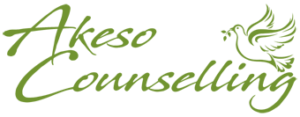Questions to ask when choosing a therapist
What do I need to know?
First of all, congratulations on your decision to reach out and seek a bit of guidance. I know that this is so scary for some people, it certainly was for me! Can I trust this person? Will they judge me? What will people think? Am I beyond help? Choosing a new therapist can be very daunting, especially if you have never sought therapy before!
 There are so many assumptions about seeking therapy. One of the biggest assumptions is that therapy is only for people who are ‘poorly’, ‘broken’, or seriously dysfunctional. Please listen to me when I say, none of this is true! Sure, some people have very serious mental health issues and are in need of specialised treatment. However, the majority of people are simply going through a season in life that they are finding particularly difficult and need a bit of help exploring these challenges. Personal therapy is a time for exploration and growth a way to get to know ourselves better so that we can thrive in our lives.
There are so many assumptions about seeking therapy. One of the biggest assumptions is that therapy is only for people who are ‘poorly’, ‘broken’, or seriously dysfunctional. Please listen to me when I say, none of this is true! Sure, some people have very serious mental health issues and are in need of specialised treatment. However, the majority of people are simply going through a season in life that they are finding particularly difficult and need a bit of help exploring these challenges. Personal therapy is a time for exploration and growth a way to get to know ourselves better so that we can thrive in our lives.
I have put together a list of some questions that might help when first contacting a new counsellor in hopes that it makes this process a bit easier for you!
What approach do you use?
Not all therapeutic modalities are created equal! Some might be short term and solution focused, some might work from your childhood, some might focus on the here and now and some might even require homework. It’s always a good idea to know what theoretical base your counsellor is working from.
What are your qualifications and experience?
There are so many different levels of counselling training and some are more rigorously tested than others. I feel like it is always important to know that your counsellor is working safely and had the appropriate level of training.
Are you a member of a regulating body?
One important thing to know is that counselling is not a licensed profession in the UK, meaning that virtually anyone can set up their own private practice with or without the appropriate training!
Make sure that the register you are using is approved by the Professional Standards Authority, this means that your counsellor was required to meet high standards of training and professionalism before being accepted onto that particular register. Also, it means that your counsellor is required to work to a particular ethical framework and will be receiving regular supervision, which are very important aspects of working safely.
What are your fees and cancellation policy?
It is always good practice to know the financial obligations for entering into therapy. Many private counsellors rent therapy rooms on a  part-time and even hourly basis and may require 24 hours notice to cancel an appointment or you might still have to pay to cover these costs.
part-time and even hourly basis and may require 24 hours notice to cancel an appointment or you might still have to pay to cover these costs.
Also, I completely understand that therapy can appear to be expensive, but it is important to recognise that many private counsellor are self employed. A busy counsellor would be working approximately 20-25 clinical hours a week, the administrative work is often unpaid. With room costs, required paid supervision, CPD, insurance and other various costs, this does not leave much left out of that hourly rate.
Do you have an up to date DBS check?
This is especially important when seeking a therapist to work with the young and vulnerable.
Where will the sessions take place?
As stated above, we work in various setting, including therapy rooms in clinics, office buildings, home or garden offices. It is important that you know what to expect when you arrive so that you can feel safe and protected. Imagine if you were given an address and pulled up to a residential home without expecting this? You might feel a bit nervous, so it is always good practice to ask first, no surprises.
First session
Lastly, at your first session, make sure you ask for the terms of confidentiality, how clinical notes are taken and stored. I would also encourage you to ask for occasional check in’s, for example, every 6 sessions I will just touch base with my client to make sure they are happy and that I am working in the best way to suit their needs, making sure we are still on the same page.
Happy Hunting!











